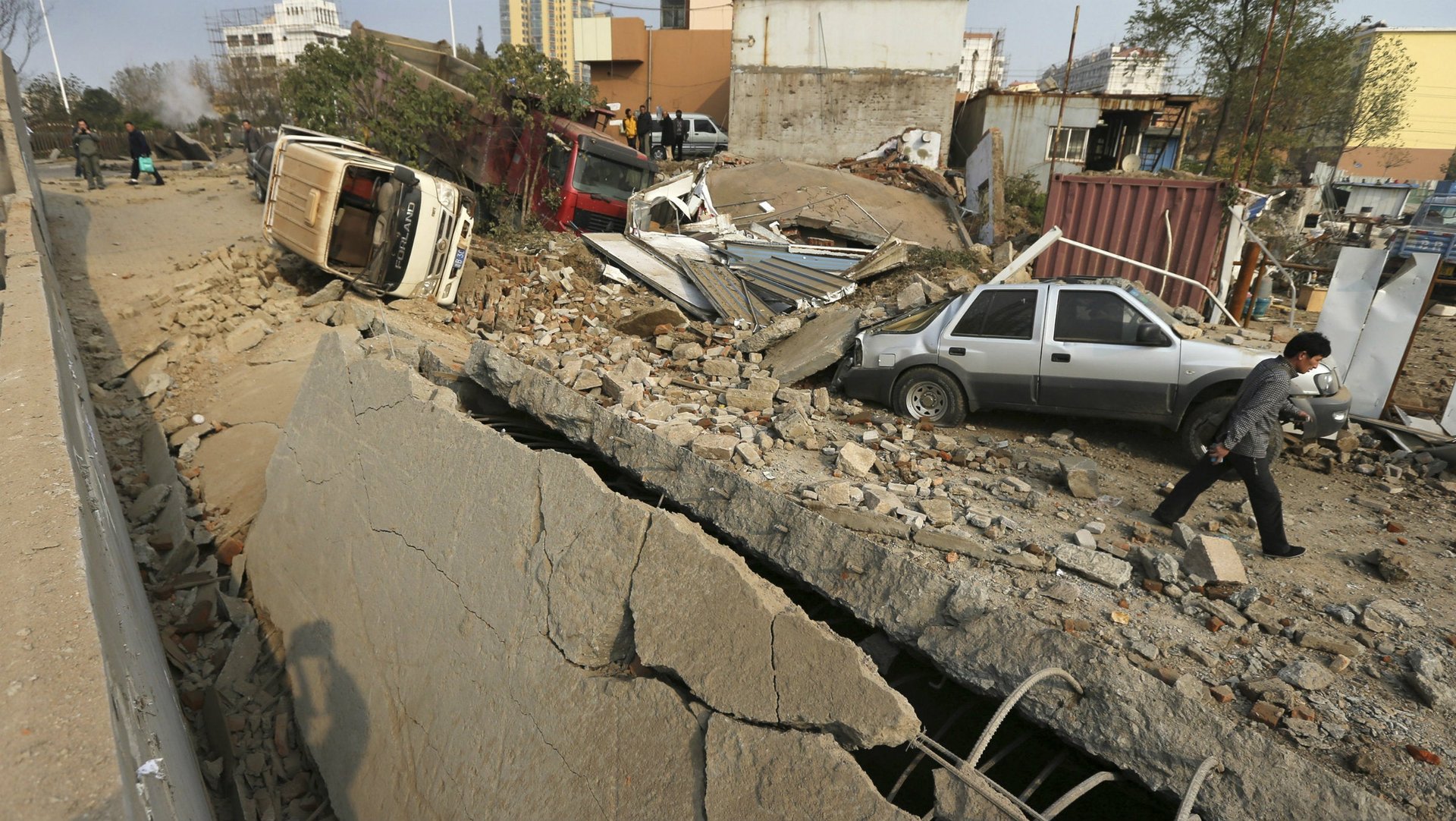China just changed the way it responds to deadly industrial accidents
China’s government reacted swiftly to an explosion at a Sinopec pipeline that killed dozens, left thousands without water or electricity and dumped oil into the sea. But rather than move to block reports on the Nov. 22 explosion from the internet or censor complaints about it—as the government did immediately following the 2011 high-speed rail crash that killed dozens—citizens complained openly on Sina Weibo (link in Chinese), officials promised accountability and a state-run newspaper examined who was at fault.


China’s government reacted swiftly to an explosion at a Sinopec pipeline that killed dozens, left thousands without water or electricity and dumped oil into the sea. But rather than move to block reports on the Nov. 22 explosion from the internet or censor complaints about it—as the government did immediately following the 2011 high-speed rail crash that killed dozens—citizens complained openly on Sina Weibo (link in Chinese), officials promised accountability and a state-run newspaper examined who was at fault.
An oil pipeline that connects the Huangdao Oil Reserve to Weifang ruptured “early in the morning,” state-owned Sinopec said in a statement today. The explosion caused oil to leak into a municipal drainage trench in the city of Qingdao and nearby Jiaozhou Bay. At 10:30am local time, “deflagration occurred” in the municipal drainage trench, the statement said, referring to the sudden, fierce ignition of the oil.
A Sinopec spokesman was even more straightforward. “The city’s drainage system exploded,” he said. As of midnight on Nov. 24, 48 were dead and 136 injured, the company said. The death toll has since risen to 56, according to local news reports and about a dozen people are still missing. Thousands in Qingdao, where nearly three million people live, are without electricity and water; 18,000 people have been evacuated.
President Xi Jinping visited the injured, and called for the launch of a “large scale work safety check,” complete with anonymous inspectors. Yang Dongliang, director of the State Administration of Work Safety, called the accident a “very serious dereliction of duty,” Xinhua reported. Problems included “unreasonable layout of oil pipelines and urban drainage pipes, negligence of duty on pipeline supervision, and unprofessional handling of oil leakage before the blasts,” Yang said.
The Beijing Youth Daily, a state-run newspaper, asked what happened (link in Chinese) in the hours between the leak being discovered and the explosion, as did many residents of the city.
The shift in reaction comes after Xi has promised more accountability for government and improved management of China’s massive state owned enterprises. But it did not mollify citizens. “Lives are cheap; service crimes have no costs and no risks; even apologies depend on mood,” one Sina Weibo user complained. “Experts say it was extremely safe, but it still ended up exploding… What about caring for the people?”
Jennifer Chiu contributed reporting